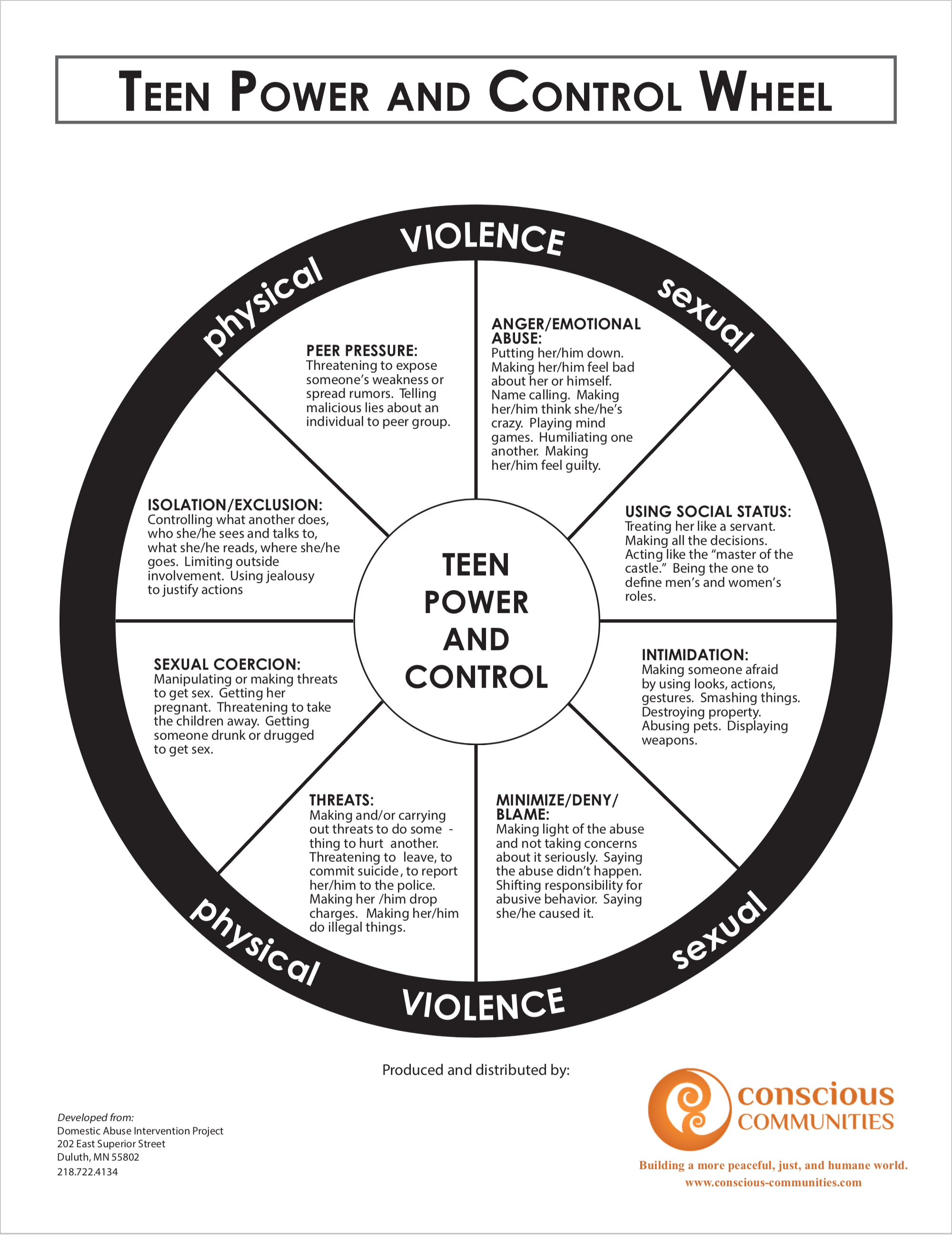Resources
Get Help.
There are resources available for you. You are not alone. In an emergency, call 911.
You can best help a survivor by offering options and leaving space for them to decide where to go from there. Here are some services that can point someone to local resources.
10 Signs.
While everyone does unhealthy things sometimes, we can all learn to love better by recognizing unhealthy signs and shifting to healthy behaviors. If you are seeing unhealthy signs in your relationship, it’s important to not ignore them and understand they can escalate to abuse. Developed by One Love Foundation.
What to say.
It can be frightening to realize that someone we care about is in danger, and it often makes us feel helpless. If you recognize these warning signs in someone’s relationship, you are not alone, and there are ways you can help. Developed by Break the Cycle.
Equality Wheel.
The Equality Wheel describes the qualities involved in healthy relationships. A healthy dating relationship is based on EQUALITY and RESPECT, not power and control. Think about how you treat — and want to be treated — by someone you care about. Compare the examples of the Equality Wheel with those on the Power & Control Wheel.
Power and Control Wheel.
Created by the Domestic Abuse Intervention Project, this wheel addresses the issues of relationship abuse that are specific to teenage relationships. It points to peer-pressure, anger/emotional abuse, using social status, intimidation, minimizing/denying/blaming, threats, sexual coercion, and isolation/exclusion as the main categories from which violence emerges.
LGBTQ.
Most often when people discuss the impact and dynamics in abusive relationships, they assume the victim is a woman and the perpetrator a male. This discounts the experience of many people across the country and world who identify as LGBT or are male victims of intimate partner violence. Intimate partner violence can occur in the context of any relationship pairing. The dynamic of abuse in LGBT relationships can look similar to what we might expect in heteronormative relationships. But the expression of power and control in LGBT relationships can be different.
How to Help a Friend Who May be Abused.
If you think that a friend or someone you know is in an abusive or unhealthy relationship, it can be difficult to know what to do. You may want to help, but be scared to lose them as a friend or feel as though it is not your place to step in. All of these feelings are normal. The most important thing you can do as friend is start a conversation. Developed by One Love Foundation, here are a few tips to help you talk to your friend.
How to Help a Friend Who May be Abusive.
It is difficult to see someone you care about hurt others. You may not even want to admit that this person is abusive. But remember, when you remain silent or make excuses, you’re encouraging their hurtful ways. Ultimately, the abuser is the only person who can decide to change, but there are things you can do to encourage them to engage in healthier behaviors. Developed by One Love Foundation, here are a few tips to help you talk to your friend.
How to Help a Young Person.
Our goal is to equip parents, caregivers and other adults with tools to engage the young people they work with in conversations about the difference between healthy and unhealthy relationship behaviors, and to provide action steps they can take if they suspect their young person (or young person they work with) is in an unhealthy and potentially dangerous relationship. Developed by One Love Foundation, here are a few tips to help you talk to a young person in your life.
Breakup Guide.
If you’re in an unhealthy or abusive relationship, figuring out the next step can be very difficult. You have feelings for this person and have developed a history with them. Ending an unhealthy or abusive relationship is not like ending a healthy one. Your abusive partner may not accept the break up or respect your boundaries. They may try to control you through guilt trips, threats or insults. It may be very difficult to have a peaceful or mutual breakup with an abusive partner. Just know that as long as YOU are ok with the decision, it’s ok if your partner is not. If you’re thinking of ending your relationship, consider these tips, developed by One Love Foundation.
Social Media and Beyond
Social media sites are a huge favorite with young people, enabling them to stay in touch with friends over chat, meet new people with similar interests, and share photos and videos. Used appropriately, social networks are a great place for young people to demonstrate their creativity. This resource provides tips on how to use social media to support mental health.






